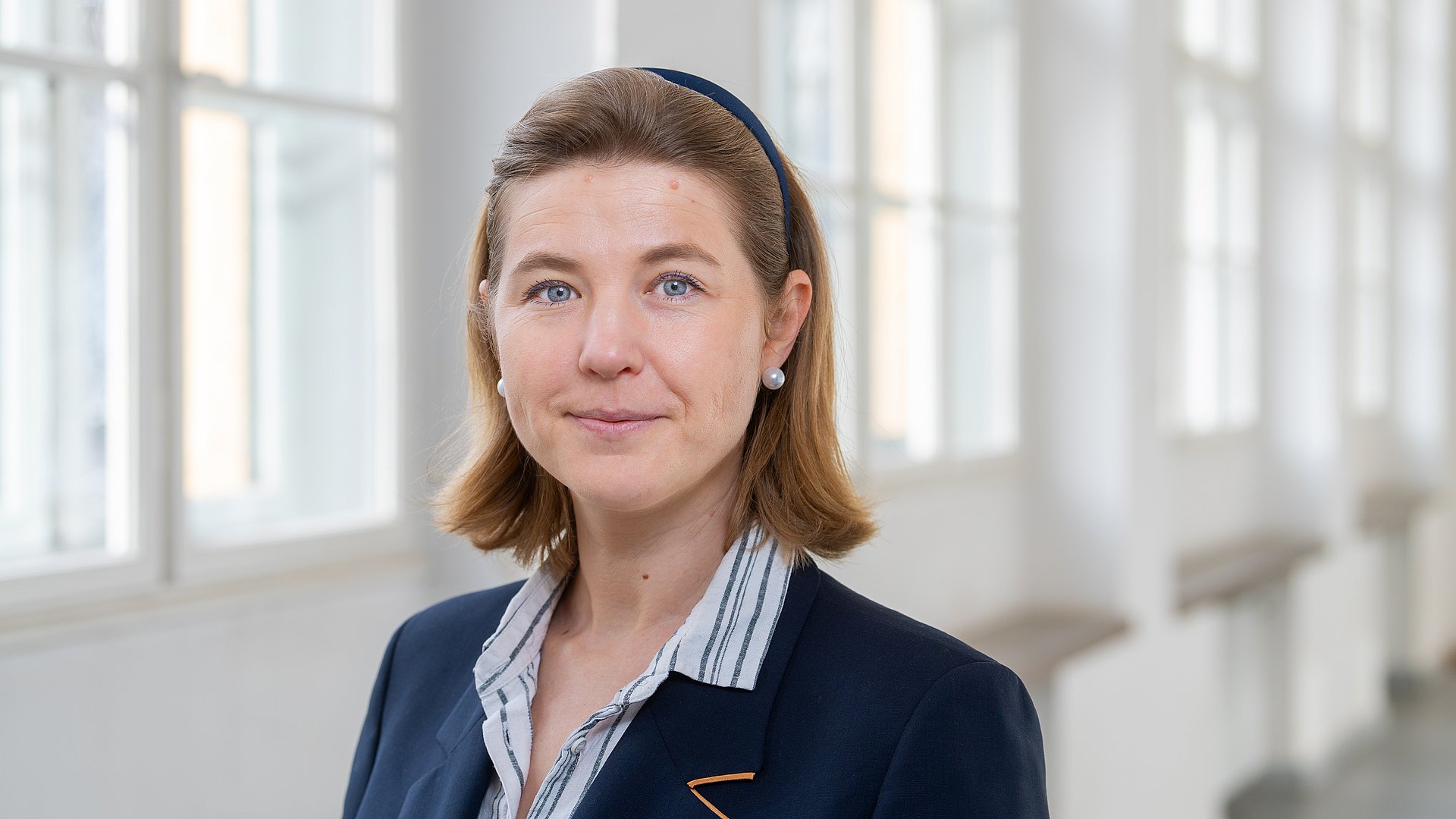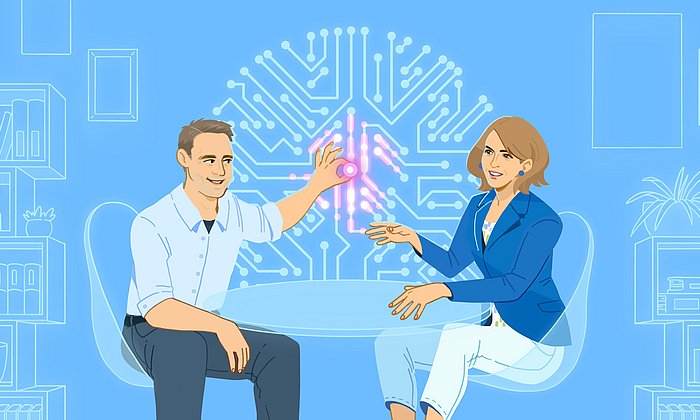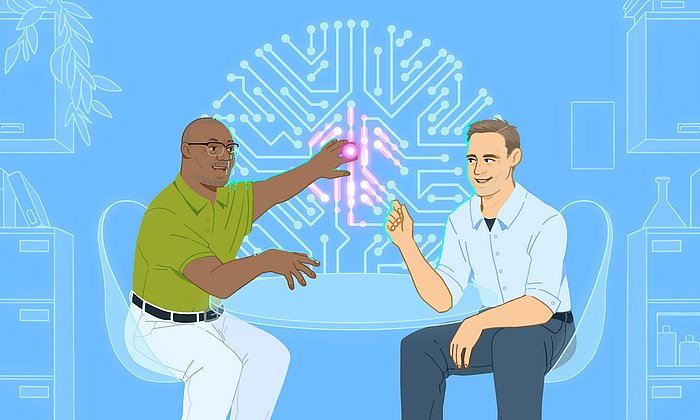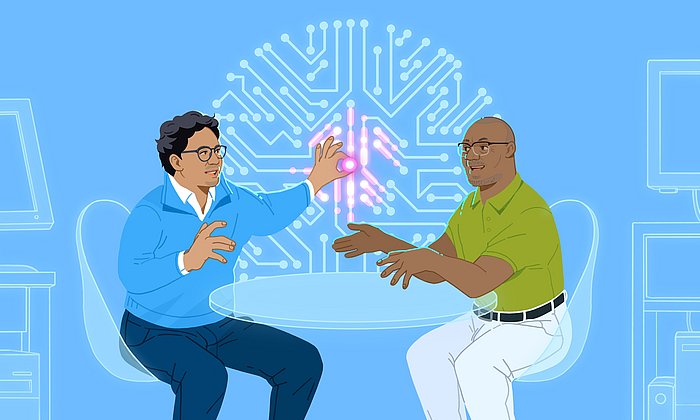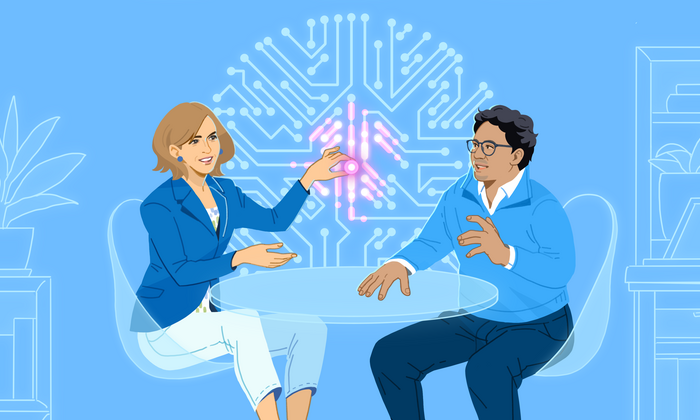NewIn: Oleksandra Poquet
Using data to learn better
Oleksandra Poquet believes that learner data is a form of educational technology and, like any educational technology, it will not serve its purpose without the right pedagogical setup. "People need to understand how they can benefit from a technology and they need an incentive to use it," she says. "Data can help learners overcome the key challenges we face in the workplace today. Cognitive offloading to AI is one such challenge. Loneliness and lack of social capital in digital and hybrid work and learning is another. Data can show us how we interact with AI or with others, and help us understand if we need to change to be better at it. The question is which data is best to give us this insight, and how best to integrate this data into learning practices."
The road to data-informed teaching and learning practices
More than a decade ago, Oleksandra Poquet moved into research after a long career in teaching. As part of an international master's programme in lifelong learning, she became acquainted with the rich history of adult education in Scandinavia. This was at a time when universities were just starting to innovate with online courses for the general public, known as massive open online courses (MOOCs). "Teachers cannot see how thousands of people are learning online at the same time, so we had to use learner data. First to understand the learning, and then to use the data to improve it."
Learning with large language models
When people learn with large language models such as ChatGPT, a lot of data is generated that can help to better understand learning with new technologies. "The recent hype around generative AI in education is of course exciting. But the use of AI in education is not new," says Oleksandra Poquet. "We have more than 50 years of research into how people learn with computers. But what we know may not be fully applicable to the new technologies as they continue to evolve."
The digital traces left by learners using AI are analysed by her and her team: “We have just completed a prototype that captures human-AI interactions and presents them to users. Agency here is of high importance – individuals need to learn to recognize if they offload thinking to technology when they actually may need to acquire the skill for themselves. That means we need to help learners make clear decisions about their data privacy, which is why we also work on innovative consent practices.”
Data literacy for future teachers
Her practical experience helps Oleksandra Poquet to understand the perspective of the future teachers attending her seminars. "We teach them the value and use of data - but also its limitations. With a better understanding of the statistical and psychological aspects, they can develop an open and critical mindset. The goal is to help them get the best out of educational technology data, rather than becoming naively enthusiastic or overly cautious." All courses are interdisciplinary and open to all students – such as the new course on data design for educational technologies.
Better tools through cautious use of data
"Interdisciplinary thinking is a must for data-driven pedagogical innovation," says Oleksandra Poquet. Intensive collaboration with various disciplines is also one of the reasons why she chose TUM after holding postdoctoral positions at the National University of Singapore, the University of South Australia and the Experimental Center for Research and Interdisciplinarity in Paris. Here she is a member of the TUM Center for Educational Technologies and the Munich Data Science Institute.
"Throughout my career, I have observed how different cultures deal with data," she says. The question of what data people are willing to share with educational technologies is now one of her research topics. “In Germany people are cautious and I appreciate that. Because of that, we have to concentrate on the essentials – what is best to trace, what data could offer and how to involve people in understanding the trade-offs – as a result, one ends up with better tools.”
- The Professorship for Learning Analytics is funded by Hightech Agenda Bayern (HTA).
- All episodes of the video series "NewIn".
Contacts to this article:
Prof. Dr. Oleksandra Poquet
Professorship for Learning Analytics
TUM School of Social Sciences and Technology
